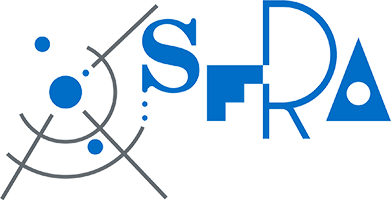SFRA 2017
Unknown Pasts/Unseen Futures
28 June – 1 July 2017
University of California, Riverside
 The 2017 SFRA conference was held at the University of California, Riverside (UCR). The home of the Eaton Collection of Science Fiction, UCR also runs the Speculative Fictions and Cultures of Science graduate program and has a robust research community focused on speculative fiction across media.
The 2017 SFRA conference was held at the University of California, Riverside (UCR). The home of the Eaton Collection of Science Fiction, UCR also runs the Speculative Fictions and Cultures of Science graduate program and has a robust research community focused on speculative fiction across media.
The conference theme was Unknown Pasts / Unseen Futures. This theme grew out of the 2016 conference, whose conversations reminded us that there is so much about the history of science fiction that has yet to be sufficiently addressed in scholarship, including marginalized or otherwise neglected bodies of work. The future of scholarship in the field can be opened up to new possibilities through this return to under-examined elements in our genre’s past, opening it up to futures that are as-yet unanticipated in existing fictional and scholarly visions. This conference theme also reflected UCR’s commitment to science fiction scholarship that is focused on imagining and creating sustainable and inclusive futures. Thus our focus was equally on new voices in the field and the new kinds of futures that emerge from this broader sense of the field’s membership.
In her acceptance speech, as she received the National Book Foundation’s Medal for Distinguished Contributions to American Letters, Ursula K. Le Guin reminded us of the importance of the speculative imagination: such visions can help us recognize that social and political structures of our present are only one option among many rather than inevitable formations. In this spirit, we invited papers that explore science fiction’s pasts from an innovative perspective and that focus on its power to envision alternative futures that are more than just the intensification of urgent problems of the present, such as environmental crisis, climate change, and growing economic inequality.
Continuing a new SFRA initiative, our program was specifically addressed to graduate students and included sessions on career professionalization.
Organizer
Sherryl Vint
